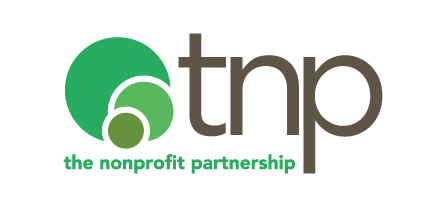Welcome to the NEW Hack Nights!
Posts
-
Public / Private Key Encryption with SSH
To wrap our heads around the concept of the key access let’s go over some of the basics.
From Wikipedia: Secure Shell (SSH) is a cryptographic network protocol for operating network services securely over an unsecured network. The best known example application is for remote login to computer systems by users.
The idea is that one machine (Client) can remotly call another machine (Server) and share an encrypted connection. This connection was similar to telnet but with the added security of cryptographic security.
Public and Private key
By default most SSH servers are only secured by a username and password. That’s not the most secure system as it can be brute-forced. There are bots on the web that dig around for unpached SSH servers with default logins still enabled.
Using a public / private key solution is far more secure.
By default when we generate a ssh-key it outputs a id_rsa and an id_rsa.pub file. To automattically have the host accept the cliet’s key the contents of id_rsa.pub should be in the hosts’ authorized_keys file. These are all text files so the authorized_keys file can have multible lines equating to devices.
Getting it down
On the host we need to generate the key.
ssh-keygen -t rsa -b 4096 -C "your_email@example.com"
It will ask you for a password. It’s highly recomended. Serices like Github won’t work without a password. It’ll also ask what to name the files but id_rsa is probably the best.
There are few high tech solutions to sending the public key to the host but I usually push it through ssh or on a thumb drive. Once the public key is on the host, from the host session run:
cat id_rsa.pub >> .ssh/authorized_keys
This will add the key to the end of the authorized key list or generate that file if it’s not already there.
SSHD
Now that everything is all set up with the keys it’s time to remove the password logins.
Edit the sshd_config:
Change the PublicAuthentication no to yes and change:
ChallengeResponseAuthentication no
PasswordAuthentication no
UsePAM no
The last step is to restart the SSHD server.
System D:
sudo systemctl restart sshd
Init.d:
/etc/init.d/sshd restart
The next time you login everything should connect without a password.
-
Git Crashcorse - Night Two
After setting up Git on your local machine we will start some simple lessions.
Poems, Not Code
To simplify our jorney into Git we will be using simple poems in the place of code. If you don’t already have access to our poem repository feel free to ask us to get you connected.
git clone git@github.com:hacknightlbc/poems.git
Original or public domain poems only, please.
-
Git Crashcorse
Tonight we’ll be covering some basics of using Git. Git is a version control system for text and code. Probably the fastest way to dig into Git is by using the online Git Tutorial. It’s easy and only take 15 minutes.
The second part we’ll tackle is installing Git on your local machine.
For Linux and Windows Subsystem for Linux
This was designed for Ubuntu based systems.
sudo apt install git
For MacOS Systems
You can download the Git binaries from the download page.
With Brew installed you can run:
brew install git
We’ll try to help everyone get set up. For those playing the home game reach out to me @arthursucks or chat with us on the Slack channel. We’ll do our best to set you up.
Never hesitate to ask for Help!
That’s exactly why this community is here.
See you tonight at:
Rebel Bite in Downtown Long Beach.
-
Rebel Bite Tonight
We are going to be meeting at Rebel Bite tonight at 6pm.
Inventive fusion takes on pizzas & sandwiches, plus craft beers, in eclectic knickknack-filled digs.
-
Working with TNP: The Nonprofit Partnership
Starting on the 26th of April Hack Night is joining forces with The Nonprofit Partnership for a monthly meetup. We’ll be helping out where ever we can with coming up with technical solutions to some of their more challenging projects.
 Even though this meetup will be focused around TNP feel free to come even if your just coming for a regular hack night. Participation with the TNP project is completely voluntary.
Even though this meetup will be focused around TNP feel free to come even if your just coming for a regular hack night. Participation with the TNP project is completely voluntary.
If you have any questions feel free to reach out to @youngidealist or @arthursucks and of course you can reach The Nonprofit Partnership by Email.
-
Eastside Beastside!
Looks like we might be on the eastside wing in the conference room from now on. Our usual area on the west site is reserved for “Long Beach United”. Also if you get a chance come and fill out our Contact form and we’ll start sharing posts right to your spam folder!
-
Hacknight 2017
Welcome to Hacknight 2017! Starting on the 11th we will be meeting on Wednesday instead of Tuesday. Steve and Arthur are still the hosts and we’ll still have pizza. Just a new night and a new year.

Click ‘Read more’ for extra pizza gifs.



Aren’t you glad you clicked that?
-
Big Mouth Billy Alexa
Finally someone did something right with the Alexa API that’s worth doing. Artist Brian Kane brought back to life the Big Mouth Billy Bass with a Raspberry Pi.
Do you, like many others, wake up each morning, gaze upon your Amazon Echo, and think, “Damn it, Echo. Instead of a shiny cylinder, why can’t you be a singing fish?”
Good news, friend. Your dreams have come true.
Read more on Techcrunch.
-
Robot Dance
Awesome video posted by Wade Johnson.
-
National Cyber Security Awareness Month
The United States Computer Emergency Readiness Team or CERT for short is is an organization within the Department of Homeland Security. This month they are declaring it National Cyber Security Awareness Month!
From the site:
October is National Cyber Security Awareness Month, which is an annual campaign to raise awareness about cybersecurity. In partnership with DHS, the National Cyber Security Alliance (NCSA) has released the first in a series of tips focused on helping people protect their online activities and increasing cybersecurity awareness. This tip describes how users can protect their online accounts using strong authentication techniques, including the use of biometrics or a security key.
You can read the post with links to security tips and tools.
Stop.Think.Connect.
Public / Private Key Encryption with SSH
To wrap our heads around the concept of the key access let’s go over some of the basics.
From Wikipedia: Secure Shell (SSH) is a cryptographic network protocol for operating network services securely over an unsecured network. The best known example application is for remote login to computer systems by users.
The idea is that one machine (Client) can remotly call another machine (Server) and share an encrypted connection. This connection was similar to telnet but with the added security of cryptographic security.
Public and Private key
By default most SSH servers are only secured by a username and password. That’s not the most secure system as it can be brute-forced. There are bots on the web that dig around for unpached SSH servers with default logins still enabled.
Using a public / private key solution is far more secure.
By default when we generate a ssh-key it outputs a id_rsa and an id_rsa.pub file. To automattically have the host accept the cliet’s key the contents of id_rsa.pub should be in the hosts’ authorized_keys file. These are all text files so the authorized_keys file can have multible lines equating to devices.
Getting it down
On the host we need to generate the key.
ssh-keygen -t rsa -b 4096 -C "your_email@example.com"
It will ask you for a password. It’s highly recomended. Serices like Github won’t work without a password. It’ll also ask what to name the files but id_rsa is probably the best.
There are few high tech solutions to sending the public key to the host but I usually push it through ssh or on a thumb drive. Once the public key is on the host, from the host session run:
cat id_rsa.pub >> .ssh/authorized_keys
This will add the key to the end of the authorized key list or generate that file if it’s not already there.
SSHD
Now that everything is all set up with the keys it’s time to remove the password logins.
Edit the sshd_config:
Change the PublicAuthentication no to yes and change:
ChallengeResponseAuthentication no
PasswordAuthentication no
UsePAM no
The last step is to restart the SSHD server.
System D:
sudo systemctl restart sshd
Init.d:
/etc/init.d/sshd restart
The next time you login everything should connect without a password.
Git Crashcorse - Night Two
After setting up Git on your local machine we will start some simple lessions.
Poems, Not Code
To simplify our jorney into Git we will be using simple poems in the place of code. If you don’t already have access to our poem repository feel free to ask us to get you connected.
git clone git@github.com:hacknightlbc/poems.git
Original or public domain poems only, please.
Git Crashcorse
Tonight we’ll be covering some basics of using Git. Git is a version control system for text and code. Probably the fastest way to dig into Git is by using the online Git Tutorial. It’s easy and only take 15 minutes.
The second part we’ll tackle is installing Git on your local machine.
For Linux and Windows Subsystem for Linux
This was designed for Ubuntu based systems.
sudo apt install git
For MacOS Systems
You can download the Git binaries from the download page.
With Brew installed you can run:
brew install git
We’ll try to help everyone get set up. For those playing the home game reach out to me @arthursucks or chat with us on the Slack channel. We’ll do our best to set you up.
Never hesitate to ask for Help!
That’s exactly why this community is here.
See you tonight at:
Rebel Bite in Downtown Long Beach.
Rebel Bite Tonight
We are going to be meeting at Rebel Bite tonight at 6pm.
Inventive fusion takes on pizzas & sandwiches, plus craft beers, in eclectic knickknack-filled digs.
Working with TNP: The Nonprofit Partnership
Starting on the 26th of April Hack Night is joining forces with The Nonprofit Partnership for a monthly meetup. We’ll be helping out where ever we can with coming up with technical solutions to some of their more challenging projects.
 Even though this meetup will be focused around TNP feel free to come even if your just coming for a regular hack night. Participation with the TNP project is completely voluntary.
Even though this meetup will be focused around TNP feel free to come even if your just coming for a regular hack night. Participation with the TNP project is completely voluntary.
If you have any questions feel free to reach out to @youngidealist or @arthursucks and of course you can reach The Nonprofit Partnership by Email.
Eastside Beastside!
Looks like we might be on the eastside wing in the conference room from now on. Our usual area on the west site is reserved for “Long Beach United”. Also if you get a chance come and fill out our Contact form and we’ll start sharing posts right to your spam folder!
Hacknight 2017
Welcome to Hacknight 2017! Starting on the 11th we will be meeting on Wednesday instead of Tuesday. Steve and Arthur are still the hosts and we’ll still have pizza. Just a new night and a new year.

Click ‘Read more’ for extra pizza gifs.



Aren’t you glad you clicked that?
Big Mouth Billy Alexa
Finally someone did something right with the Alexa API that’s worth doing. Artist Brian Kane brought back to life the Big Mouth Billy Bass with a Raspberry Pi.
Do you, like many others, wake up each morning, gaze upon your Amazon Echo, and think, “Damn it, Echo. Instead of a shiny cylinder, why can’t you be a singing fish?”
Good news, friend. Your dreams have come true.
Read more on Techcrunch.
Robot Dance
Awesome video posted by Wade Johnson.
National Cyber Security Awareness Month
The United States Computer Emergency Readiness Team or CERT for short is is an organization within the Department of Homeland Security. This month they are declaring it National Cyber Security Awareness Month!
From the site:
October is National Cyber Security Awareness Month, which is an annual campaign to raise awareness about cybersecurity. In partnership with DHS, the National Cyber Security Alliance (NCSA) has released the first in a series of tips focused on helping people protect their online activities and increasing cybersecurity awareness. This tip describes how users can protect their online accounts using strong authentication techniques, including the use of biometrics or a security key.
You can read the post with links to security tips and tools.
Stop.Think.Connect.
subscribe via RSS